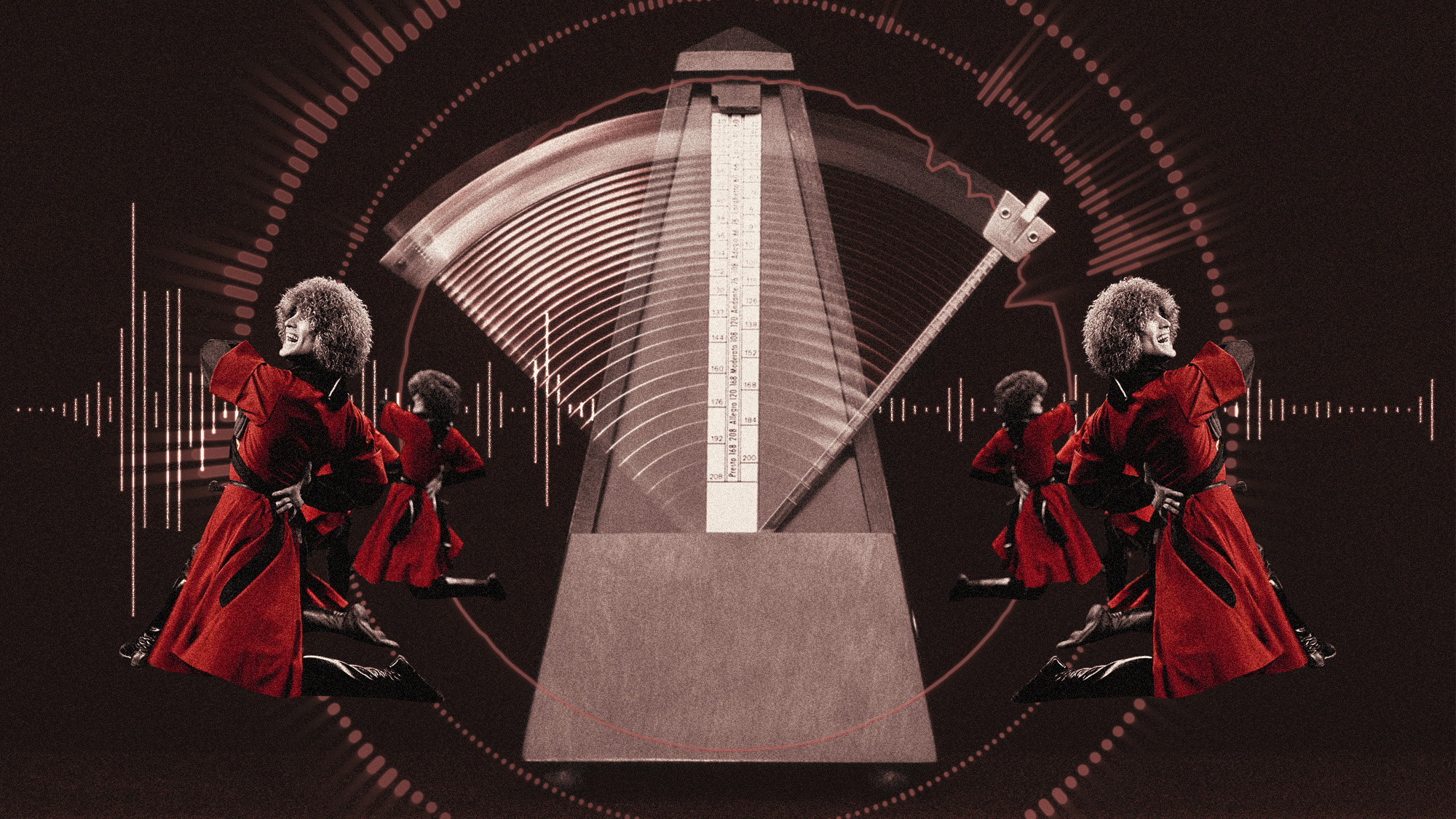Why Chechnya has banned music that is 'too fast or too slow'
Many Western pop songs – and Russian national anthem – fall foul of new rules to protect 'cultural heritage'

A free daily email with the biggest news stories of the day – and the best features from TheWeek.com
You are now subscribed
Your newsletter sign-up was successful
Taylor Swift's iconic hit "Shake It Off" is rarely mentioned in the same breath as the Russian national anthem but both have fallen foul of a new ruling on music in Chechnya.
The Russian republic has announced a ban on music that the regime considers too fast or slow, ruling that all songs and compositions should "correspond to a tempo of 80 to 116 beats per minute", said Sky News.
The Chechen 'mentality'
The country's leader Ramzan Kadyrov told culture minister Musa Dadayev to make its music "conform to the Chechen mentality", said The Moscow Times. Announcing the ban, Dadayev said: "Chechen musical culture has always been diverse in tempo and methodology. We must pass on our cultural heritage to our children: the customs, traditions, our adats [traditional laws], nokhchalla [code of honour] – features of the Chechen character, which includes the entire spectrum of moral and ethical standards of life of the Chechens."
The Week
Escape your echo chamber. Get the facts behind the news, plus analysis from multiple perspectives.

Sign up for The Week's Free Newsletters
From our morning news briefing to a weekly Good News Newsletter, get the best of The Week delivered directly to your inbox.
From our morning news briefing to a weekly Good News Newsletter, get the best of The Week delivered directly to your inbox.
Artists have been given until 1 June to rewrite any material that doesn't meet the criteria and if their music isn't reworked they won't be allowed to perform it in public. The new tempo is "relatively slow" compared to a lot of modern pop music, said Sky News, and "would rule out a number of western genres from being played publicly in the conservative Islamic society".
Politico lists some of the songs that are banned under the rule. "Coming in hot at 160 BPM", Taylor Swift's "Shake It Off" is "definitely out", and Beyoncé's "Single Ladies" doesn't "make the cut" at 193bpm. "Girls Just Want to Have Fun" by Cyndi Lauper and "Hot Stuff" by Donna Summer are also out of the question.
But "embarrassingly for Kadyrov", who is a "slavish supporter" of Vladimir Putin, the Russian national anthem also flouts the new rule, said The Times. The hymn, a "solemn ode to the motherland composed during the Soviet era", is only 76bpm.
'Vicious cancer'
Many regimes have sought to restrict Western music and cultural influences. After the Islamic Revolution in 1979, Western music was banned in Iran, said Euronews. Many pop songs were forbidden, record shops "vanished" and concert halls "fell silent", said the news site, and anyone caught with music deemed "un-Islamic" could be fined, lashed or imprisoned for "causing corruption on earth".
A free daily email with the biggest news stories of the day – and the best features from TheWeek.com
All music, except party propaganda, was banned in Cambodia during the rule of the Khmer Rouge in the 1970s, said The Economist, and last summer, the Taliban burned musical instruments in Afghanistan, claiming music "causes moral corruption". Since returning to power in 2021, the Taliban has imposed "numerous restrictions", including on playing music in public, said the BBC.
In North Korea, outside music is banned and Kim Jong-un has publicly condemned K-Pop (pop music originating in South Korea) as a "vicious cancer" permeating North Korean society, said Sarah A. Son, from the University of Sheffield, on The Conversation. In Malaysia, local laws ban radio stations from playing songs that are "offensive to public feeling" or "violate good taste and decency".
The UK has had its own moments of musical censorship, said Vice. It said the "needlessly discriminatory" Section 63 of the 1994 Criminal Justice Act gave police the power to shut down events featuring music that was "characterised by the emission of a succession of repetitive beats".
Chas Newkey-Burden has been part of The Week Digital team for more than a decade and a journalist for 25 years, starting out on the irreverent football weekly 90 Minutes, before moving to lifestyle magazines Loaded and Attitude. He was a columnist for The Big Issue and landed a world exclusive with David Beckham that became the weekly magazine’s bestselling issue. He now writes regularly for The Guardian, The Telegraph, The Independent, Metro, FourFourTwo and the i new site. He is also the author of a number of non-fiction books.